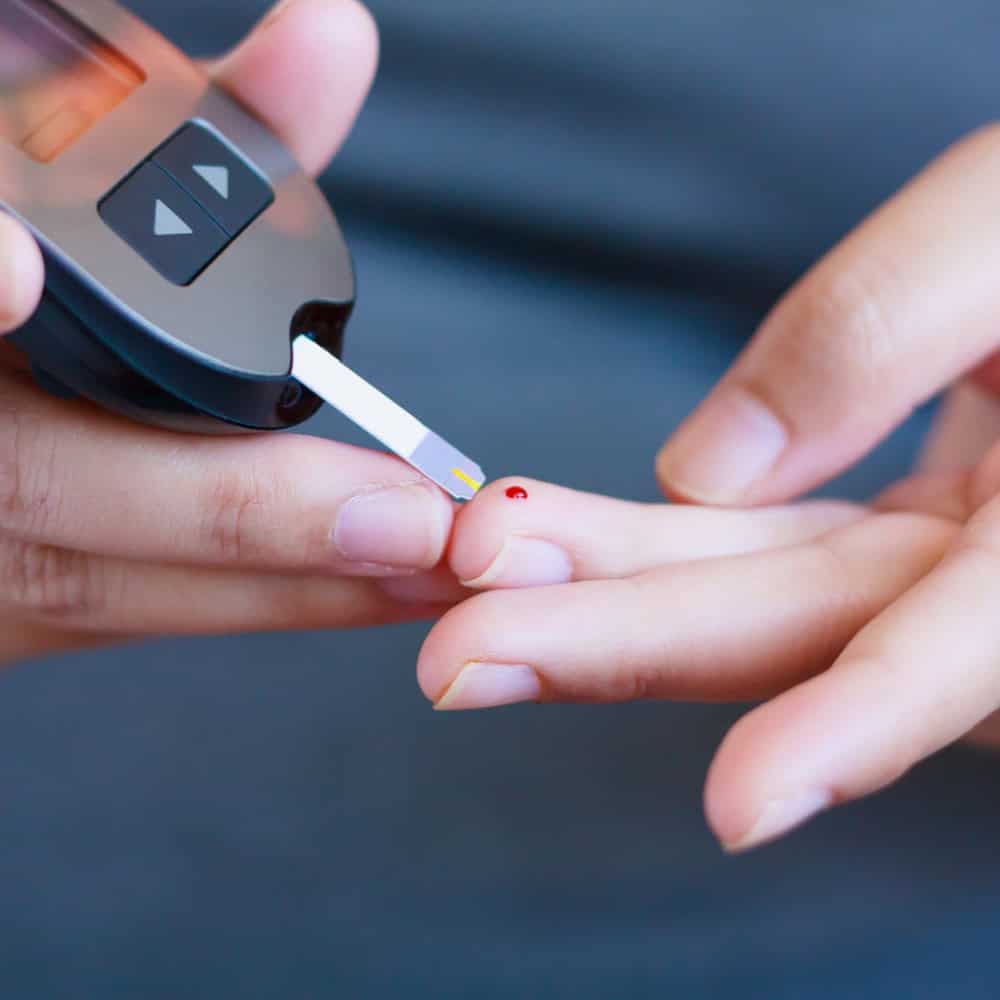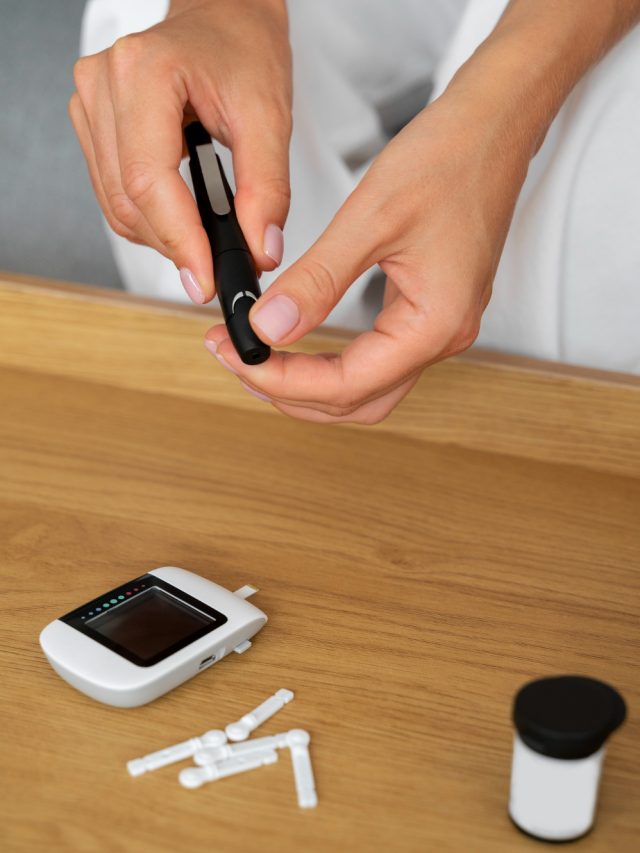
Diabetes management can be challenging, particularly when blood sugar levels exhibit daily fluctuations depending on factors like your dietary choices, medication adherence, and level of physical activity. Whether it is type 1 or type 2 diabetes, both can be better managed through the regular monitoring of your blood sugar levels.
Experience simplicity and precision with Dr. Morepen BG 03 Glucometerto monitor your glucose levels for better control
Fluctuating or inconsistent blood sugar levels, often referred to as glycemic variability, can significantly impact the quality of life for individuals living with diabetes. World Diabetes Day is observed on 14th November every year. This World Diabetes Day, let’s go through some tips for managing and monitoring high blood glucose levels:
1. Evaluate Daily Diet Intake: Carbohydrates are a key diet component that you essentially need to modify to bring about a significant impact on diabetes management. Reducing or adjusting your carbohydrate consumption may help stabilize your blood sugar levels. Healthy Plate Method is the simplest diet rule for people with diabetes.
2. Maintain a Regular Exercise Routine: Physical activity can assist in regulating blood sugar levels. incorporate a minimum of 150 minutes of moderate-intensity physical activity into your weekly routine. One effective approach is to strive for a daily commitment of 20 to 25 minutes of physical activity[1]. This consistent effort can greatly benefit your diabetes management.
3. Manage Stress & Prioritize Sleep: Stress management and adequate sleep are important for maintaining stable blood sugar. Incorporate relaxation techniques into your daily routine and ensure you get quality sleep.
4. Stay Hydrated: If you’re experiencing symptoms or notice high blood sugar levels, drink enough water. Proper hydration can help dilute excess sugar in your bloodstream.
5. Frequent Monitoring: Monitor your blood sugar levels regularly to track changes and identify patterns. Monitor ketone levels, especially if your blood sugar is consistently high.
Take charge of your blood sugar levels: Discover Dr. Morepen BG 03 Gluco One Glucose Monitoring System Glucometer here!
6. Check for Underlying Infection: Investigate the presence of ongoing infections that can contribute to elevated blood sugar. Addressing these issues may help improve your control.
7. Consult a Nutritionist: Meeting with a nutritionist can be beneficial in revising your eating habits. They can guide you in creating a balanced diet tailored to your diabetes management needs.
Discover Our Comprehensive Range of Diabetes Essentials. Buy now
8. Consult Your Diabetologist: Regularly consult your diabetologist to review and potentially adjust your medication dosages. Your doctor may need to modify the amount, timing, or type of diabetes medications you are prescribed to achieve better control.
How often should you check your blood sugar?
Your healthcare provider determines blood sugar testing frequency, which varies based on your diabetes type and treatment plan.
For Type 1 Diabetes:
-Recommended 4 to 10 times a day
-More frequently when ill, changing routines, or starting new medications
For Type 2 Diabetes:
Noninsulin medications or diet and exercise alone may not require daily testing.
To conclude, the benefits of diligent blood sugar monitoring in diabetes management are undeniable. With diabetes affecting each person uniquely, there’s no universal solution. However, the information gathered through regular monitoring using Dr. Morepen BG 03 Gluco One Glucose Monitoring System Glucometer in collaboration with your doctor’s guidance is the foundation for tailored treatment plans enabling you to lead a healthier and more fulfilling life.
Rise Above Diabetes: Unbeatable Deals on Life-Changing Products for a Healthier Tomorrow! Check them now!
(The article is written by Dr.Subita Alagh, Senior Executive, and reviewed by Monalisa Deka, Senior Health Content Editor)
Reference
